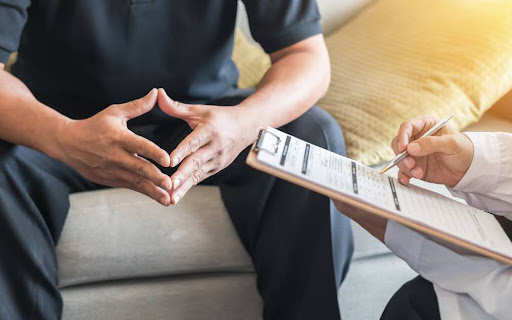Psychiatric services can be used to address a variety of mental disorders and mental health conditions. However, speaking with mental health professionals about your struggles — especially if it’s your first time — can be a challenging experience. If you want to learn how to prepare for psychiatric services, here’s a quick look at four helpful things you can do.
Arrive With Knowledge
If you want to ensure there aren’t any surprises during your psychiatrist visit, then be sure to show up with the right knowledge for the job. For example, familiarizing yourself with your previous medical treatment, any diagnoses, and treatment plans you’ve had will help your psychiatrist. Additionally, knowing your own background in terms of a family history of mental illness can influence the management and understanding of your psychiatric conditions.
Know What to Ask Your Psychiatrist
Another way you can prepare for your session is by knowing what kinds of questions you want to ask. While you may think of questions to ask at the moment, it won’t hurt to develop some beforehand. Doing so can help steer the course of the conversation.
For instance, you might benefit from asking about different treatment options that might affect both your mental and physical health. Some other questions may include clarifications about symptoms and the potential side effects of medications. These questions can not only empower you but also foster a collaborative relationship with your psychiatrist.
Mentally Set Expectations
When it comes to preparing for psychiatric services, setting realistic expectations is important. Be mindful that you will need to be vulnerable when sharing experiences and discussing mental illness symptoms with your psychiatrist or a trained medical doctor.
Recognize that the goal of ongoing psychiatric services is to progressively address mental health problems through therapeutic strategies that involve talking and possibly medication. This understanding can prepare you to face major stressors or emotional revelations with resilience, contributing to long-term improvement in your mental well-being.
Make Comfort a Priority
Given how revealing personal information to a psychiatrist can be stressful, it’s important to do what you can to stay as comfortable and relaxed as possible. Thankfully, there are several creative ways you can make your own comfort a priority.
Wear comfortable clothing to your appointment and consider bringing a personal item that provides reassurance, like a book or a meaningful belonging. Creating a mental checklist of what makes you feel secure — from selecting a comfortable seat to practicing breathing techniques before the session — can also help alleviate excessive worrying and help you engage more openly in talk therapy. Making yourself comfortable can ease the process of discussing sensitive topics so you can focus.
Call Hope Springs Behavioral Health Today
These four steps are just a sample of what you can do to prepare mentally for a psychiatrist visit. For more detailed methods tailored to your unique circumstances, reach out to a mental health professional at Hope Springs Behavioral Health. We offer several mental health services to help those in need, including psychiatric services, family therapy, and more. To learn how we can help with your mental health concerns, reach out today.


